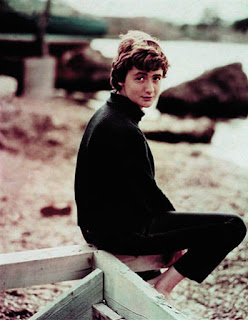 The new book by Jonathan Coe, The Rain Before It Falls, will surprise fans of previous efforts such as The Rotters' Club and The Closed Circle. First of all, this satirical specialist of blokes has written a "women's novel" he says was inspired by Rosamond Lehmann; second, the narrator is an elderly lesbian. Not being a fan of the "write about what you know" school (a novel is fiction, after all), I enjoy it when writers step out of their comfort zone—in this particular case, when a straight man writes a good lesbian character. And Rosamond (yes, she is named Rosamond) is a good character, in both senses of the word: She is a good soul and a good person to have around in a book.
The new book by Jonathan Coe, The Rain Before It Falls, will surprise fans of previous efforts such as The Rotters' Club and The Closed Circle. First of all, this satirical specialist of blokes has written a "women's novel" he says was inspired by Rosamond Lehmann; second, the narrator is an elderly lesbian. Not being a fan of the "write about what you know" school (a novel is fiction, after all), I enjoy it when writers step out of their comfort zone—in this particular case, when a straight man writes a good lesbian character. And Rosamond (yes, she is named Rosamond) is a good character, in both senses of the word: She is a good soul and a good person to have around in a book.In The Rain Before It Falls, bad things happening to good people (and bad things happen to bad people, too), but one of the book's central conceits is the senselessness of not letting go. Rosamond never recovers from her two-year affair with Rebecca, and she never gets over her childhood friendship with Beatrix either—even when it becomes clear Beatrix is manipulative, selfish and uncommonly mean. The self-defeating trajectory of Rosamond's life is what makes the book so deeply melancholy.
I've also polished off Marie-Dominique Lelièvre's fascinating new biography of Françoise Sagan (pictured), Sagan à toute allure. It's actually elegantly written and far from your standard American or English bio loaded with meaningless details such as "Monday, March 15, 1973, was a rainy day, the stock exchange was down, he was wearing green socks, etc." Instead, Lelièvre trims the fat and captures what Sagan meant in her times and how she operated—this should be what all bios are about, but they rarely are, drowning those insights under an avalanche of "I did my homework" minutiae.
And the author has a quirky way with background detail. For instance, Sagan was in a terrible, life-changing (it led to her being hooked to drugs) car accident when she was 22 or so, but instead of getting into mindnumblingly boring medical details, Lelièvre talks to J.G. Ballard about the meaning of car crashes! Another fun one: Sagan's writing was often described by reviewers are being light, casual, transparent; Lelièvre takes some of her books to Jean-Louis de Boissieu, a Sorbonne grammarian, so he can analyze the vocabulary and sentence construction. He finds them a lot more sophisticated and complex than Sagan was ever given credit for, pointing out that when they wrote about her books, reviewers actually described Sagan's life rather than her literary worth.
American readers may find Lelièvre's often-elliptical approach frustrating but I find it challenginly cool. And there's plenty of great goss, like the fact that Sagan had an affair with Ava Gardner, or her love story with Peggy Roche, fashion editor at French Elle, or the story that her dog Banco OD'ed after sniffing one of her coke-saturated handkerchiefs. Oddly, no mention whatsoever of Annick Geille, editor in chief at French Playboy in the 1970s, who recently published Un amour de Sagan, a memoir about her lengthy affair with the novelist.



